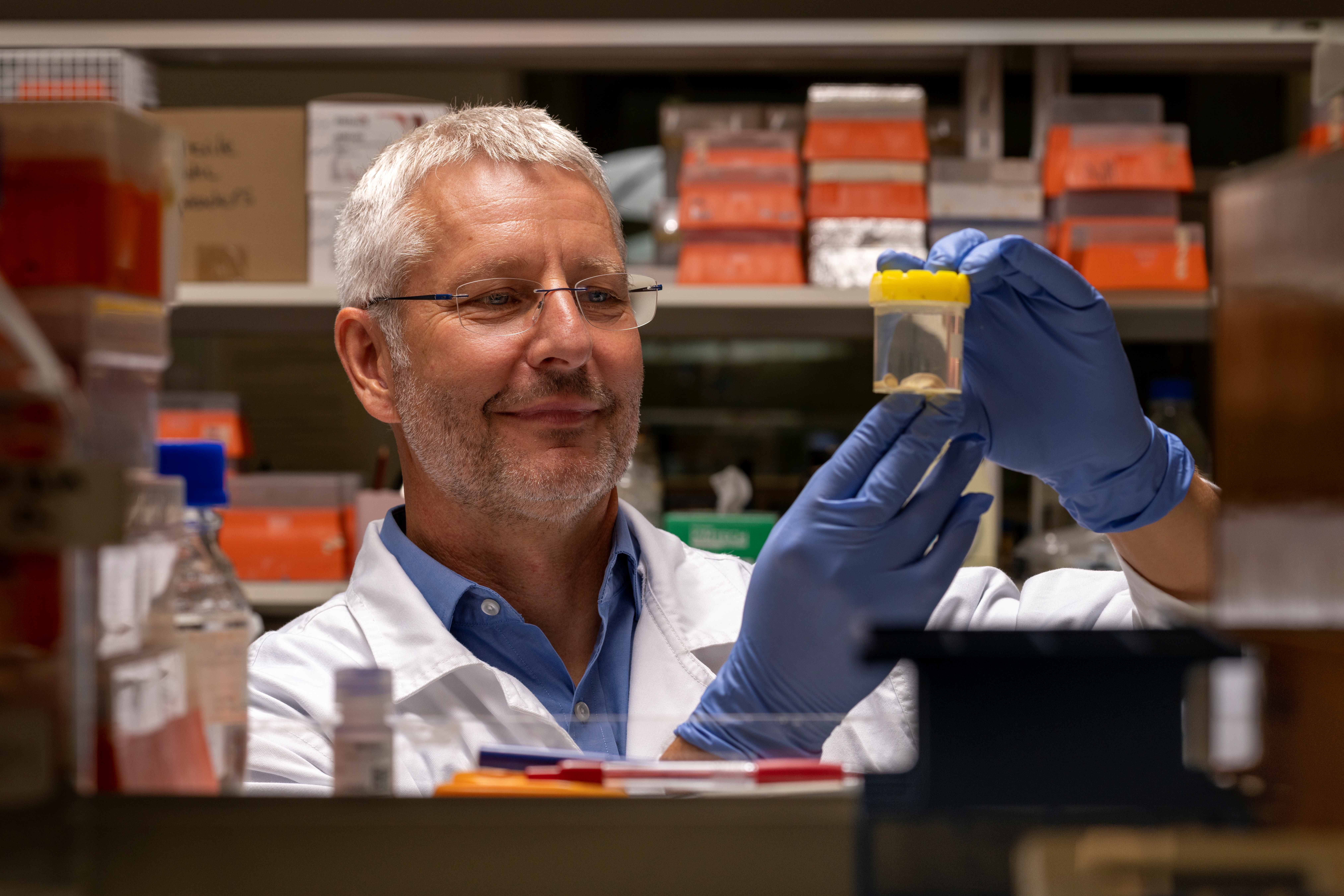
A better way to treat parasites in livestock
Professor Alex Maier never imagined himself working in agriculture.
An award-winning molecular parasitologist, most of Professor Maier’s work to date has focused on parasitic diseases affecting people.
But funding and support he’s received through AFII’s Strategic Investment Program (SIP) has enabled the malaria researcher to translate his knowledge and experience to tackle parasites which affect livestock.
The SIP offers funding and support to ANU researchers for projects focused on solving agricultural challenges.
“We have devised a platform that allows us to deliver anti-parasitic drugs more efficiently into parasites using cholesterol molecules both as a delivery mechanism and a Trojan horse,” Professor Maier says.
“By administering the drugs this way we can use a lower dose, making it cheaper and more effective, and less toxic for the animal.”
The prevention, treatment and knock-on effects of parasitic infections in animals costs Australian agriculture hundreds of millions of dollars each year.
While there are a number of drugs which are efficient, effective against many parasites and have low toxicity, a heavy reliance on their use has led to a level of drug resistance.
And concerns about this drug resistance extend beyond agriculture.
“For treating parasites, we use the same drugs for animals and people. Once a parasite becomes resistant to a drug in animals, it's only a matter of time before this resistance appears in humans,” he says.
Each parasite that Professor Maier and his team can deliver a solution for could potentially save the industry billions of dollars.
Over the course of the project, the team has developed a platform technology which can be used to deliver different types of anti-parasitic medication for different animals including pigs, sheep and cattle.
As well as solving a significant agricultural challenge, Professor Maier says working on the project has changed the way he approaches his other research.
“While I’ve always been quite focused on the application of my research, this work has made me more focused in other projects. It’s also made me more open to exploring ideas,” he says
“I would encourage everyone who just remotely thinks about going down the path of industry-focused research to have a conversation with AFII.
“The Strategic Investment Program is outcome-driven and is focused on getting the best out of each project. It’s not just funding, it’s support for taking something from research to industry application.”
Funding to progress this technology further remains a challenge, but by working with AFII, Professor Maier is hopeful he and his team can soon take the next step to conducting trials of the technology in live animals.
In 2024 AFII awarded $101,480 to six projects across ANU focused on a wide range of issues facing Australia agriculture including investigating the impact of Indigenous cultural burning on the productivity of cattle grazing the circular economy challenges of ag biotech; multidisciplinary analytics for the grains industry; and optimising yeast strains for efficient production of animal-free dairy proteins.
